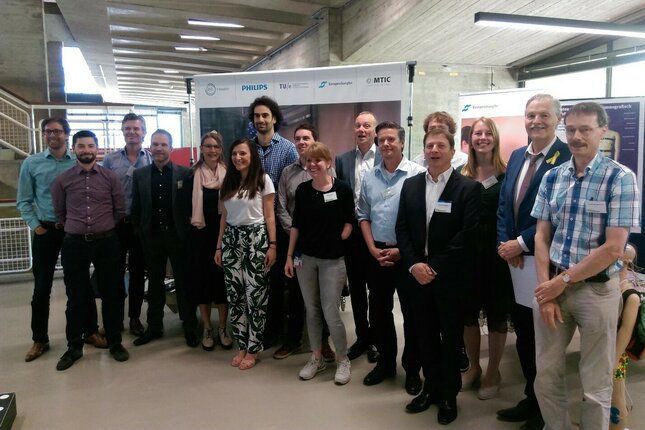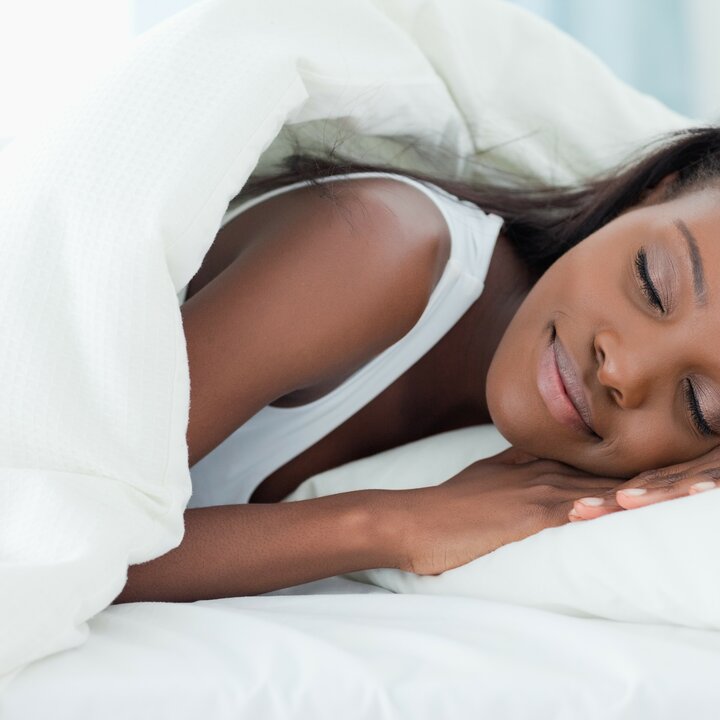Advanced Sleep Monitoring
ADVANCED SLEEP MONITORING
Sleep is an essential behavior, takingup about approximately one third of our lives. Therefore, it is not surprisingthat sleep disorders have a profound impact on quality of life.
Both subjective symptoms of sleepdisorders as well as objective indicators of sleep quality are not constant,and can vary considerably from night to night. In current clinical practice however, sleep monitoring usually consistsof only one night recording of physiological signals such as brain activity,heart rate and respiration. Moreover, current diagnostic techniques assess onlya small part of the underlying pathophysiology, still using EEG-basedpolysomnographic measurements developed in the '60s. Therefore, there is astrong need for advanced sleep monitoring techniques that can obtain bothsubjective and objective data over the long term in patient friendly (at home)settings, and assess disorders on a deeper pathophysiological level.
Within theBM/d Research Lab, we are intensively working together withthe Centerfor Sleep Medicine Kempenhaeghe to create a next generation ‘toolbox of sleep medicine’, improving the careprocess from screening, diagnosis, treatment selection towards outcomemonitoring.
Research approaches include advancedanalysis techniques to extract more information from current diagnostictechnologies such as polysomnography. Moreover, new technologies are developedand validated to fundamentally upgrade sleep monitoring and diagnostics. Theseinclude non-obtrusive ways of long-term sleep assessment, for example based oncardiorespiratory sleep scoring. Morepathophysiological insights are gained from new ways to quantify respiratoryeffort. The long-term tracking of subjective sleep symptoms is combined withthese objective measurements. Importantly, sleep is regarded as a ’24-hour phenomenon’, implying thatassessment of daytime symptoms and behavior is an essential part of thediagnostic process.
ADVANCED SLEEP MONITORING
Sleep is an essential behavior, takingup about approximately one third of our lives. Therefore, it is not surprisingthat sleep disorders have a profound impact on quality of life.
Both subjective symptoms of sleepdisorders as well as objective indicators of sleep quality are not constant,and can vary considerably from night to night. In current clinical practice however, sleep monitoring usually consistsof only one night recording of physiological signals such as brain activity,heart rate and respiration. Moreover, current diagnostic techniques assess onlya small part of the underlying pathophysiology, still using EEG-basedpolysomnographic measurements developed in the '60s. Therefore, there is astrong need for advanced sleep monitoring techniques that can obtain bothsubjective and objective data over the long term in patient friendly (at home)settings, and assess disorders on a deeper pathophysiological level.
Within theBM/d Research Lab, we are intensively working together withthe Centerfor Sleep Medicine Kempenhaeghe to create a next generation ‘toolbox of sleep medicine’, improving the careprocess from screening, diagnosis, treatment selection towards outcomemonitoring.
Research approaches include advancedanalysis techniques to extract more information from current diagnostictechnologies such as polysomnography. Moreover, new technologies are developedand validated to fundamentally upgrade sleep monitoring and diagnostics. Theseinclude non-obtrusive ways of long-term sleep assessment, for example based oncardiorespiratory sleep scoring. Morepathophysiological insights are gained from new ways to quantify respiratoryeffort. The long-term tracking of subjective sleep symptoms is combined withthese objective measurements. Importantly, sleep is regarded as a ’24-hour phenomenon’, implying thatassessment of daytime symptoms and behavior is an essential part of thediagnostic process.

Some of our researchers
Our PhDs, EngDs and PD
| position | full name | research topic |
| PhD | Jaap van der Aar | Sleep diagnosis with long-term ambulatory EEG |
| PhD | Maarten van den Broek | Medtech solutions for Earlier DetectIon of CArdIovascular Disease - AF/OSA |
| PhD | Luca Cerina | Advanced OSAS phenotyping by AI: discovering new predictors of clinical relevance, symptom severity and therapy outcome using big data |
| EngD | Greice de Freitas Korbes | Unobtrusive Monitoring of Sleep Apnea: automatic camera-based aiming |
| PhD | Hans van Gorp | Sleep microstructure via cardiorespiratory surrogates |
| PhD | Jasmin Kuhn | PAP therapy monitoring for Obstructive Sleep Apnea |
| EngD | Senna Meij | Development and implementation of an infrastructure to securely share large, complex and multimodal clinical sleep research datasets |
| EngD | David de Melo | Unobtrusive Monitoring of Sleep Apnea |
| PhD | Raquel Pires Alves | Unobtrusive Monitoring of Sleep Apnea |
| PhD | Shuhao Que | Unobtrusive Monitoring of Sleep Apnea |
| PhD | Jai Scheerhoorn | Peri-operative cardiorespiratory monitoring 5) |
| PhD | Laura Schiphorst | PAP therapy monitoring for Obstructive Sleep Apnea |
| PhD | Bernice Wulterkens | Medtech solutions for Earlier DetectIon of CArdIovascular Disease - Comorbid OSA and Insomnia |
| PhD | Jiali Xie | Multimodal Signal Analysis for Characterization of Unobtrusive OSA |
| PhD | Jiali Xie | Detection of obstructive sleep apnea with multimodal unobtrusive measurements |
| EngD | Hongji Xu | Respiratory monitoring of OSA patients by electromyography |
| PhD | Dandan Zhang | Unobtrusive monitoring of premature infant sleep |
Collaboration researchers
Sleep Medicine Publications
Check out the Sleep Medicine Publications on our Research portal.
Sleep Medicine Research group
-
Visiting address
drs Jayson Lebc. Tyler de Bruin ADvan den Polsteeg4702HJ Nieuwlande Coevordenthe Netherlands -
Postal address
Kick BouwhuisenKaylee Prinsenvan RooijbaanPO Box P.O. Box 5138181VZ Bronnegerveenthe Netherlands -
Secretary
Joep van NusDean van Hugenpoth tot den BerenclauwElsenaarweg2171XJ Drouwen
